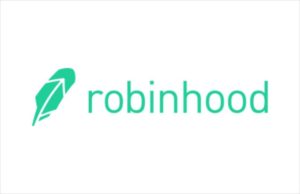 Many people rely on apps to guide their personal finance decisions, create strategies for getting out of debt, and to track their financial health. One app that has quickly been gaining popularity in recent months is Robinhood, which aims to help people make money through stock investing without paying a commission. The app mostly attracts younger individuals with minimal investing experience, which has resulted in its rapid growth. The app, which has a valuation in excess of $5 billion, has a user base that is larger than the number of brokerage accounts at E*Trade Financial.
Many people rely on apps to guide their personal finance decisions, create strategies for getting out of debt, and to track their financial health. One app that has quickly been gaining popularity in recent months is Robinhood, which aims to help people make money through stock investing without paying a commission. The app mostly attracts younger individuals with minimal investing experience, which has resulted in its rapid growth. The app, which has a valuation in excess of $5 billion, has a user base that is larger than the number of brokerage accounts at E*Trade Financial.
Users of the Robinhood app will discover a number of benefits. For example, the app is easy to use and provides access to certain investments without the overhead of a commission. People can even purchase exchange-traded funds (ETFs), which are bundles of stocks and bonds that inherently come with diversification. Young investors often use ETFs as the building blocks of smaller portfolios due to the low risk associated with them. While Robinhood offers many benefits, less experienced investors should thoroughly research the various aspects of the app beforehand.
Stock Picking on the Robinhood Platform
One aspect of Robinhood that users will encounter involves the process of stock picking. When people initially open the app, they will see a list of the most popular stocks, such as Apple and Netflix, as well as cryptocurrencies such as Bitcoin. Finding more affordable options and well-diversified ETFs involves a bit of digging that individuals may not know how to do without some prior knowledge of the stock market. Stock picking is a risky practice that most new investors avoid. Researchers have found that short-term stock fluctuations are basically random and that even experienced investors may struggle while stock picking for long-term investments.
When people purchase a stock late into a bull market, they often overpay for one that may soon take a nosedive. Unfortunately, this fall can create panic that motivates people to sell low instead of hanging on to the stock and letting its value increase again. In general, index funds outperform every other strategy in the long run since they look at the performance of the market as a whole and do not try to use timing to their advantage. However, inexperienced investors may not understand this concept.
Frequency of Trading
Another aspect of Robinhood that inexperienced investors must carefully consider relates to the frequency of trading. When people purchase a stock on the app, confetti explodes across the screen and then notifications about the stock’s performance appear several times each day. As a result, individuals may feel pressured to sell quickly after purchasing the stock, either because it fell or rose significantly. While these notifications can be customized, the stock setting pushes them out quite frequently, which can prove stressful for new investors who do not know to change the settings.
Many people wonder how Robinhood makes its money considering that it does not charge a commission for the trades conducted on its platform. Like many other brokerages, money comes from interest on the assets held within the accounts. However, the app also offers a subscription service that provides access to margin, meaning that people can borrow money to invest with more than what they personally possess directly through the app.
The Bottom Line on Using Robinhood to Invest in Stocks
While Robinhood has stated that its subscription service is meant only for experienced traders, that will not discourage many younger users from diving in, and this part of the business certainly seems profitable for the app. All in all, the app appears to be designed more for experienced traders who understand the risks involved with stock purchases than for the younger people to whom the app most appeals. Of course, inexperienced investors can still use the app to make some smart trades without paying a commission. However, they will need to undertake a lot of independent research first. The best strategy for new investors is to purchase a cheap ETF and then turn off notifications altogether. However, it may be even better to invest in index funds through brokerages such as Fidelity, Schwab, and Vanguard.
Another option that appears promising is the new JPMorgan Chase app, which enables users to make up to 100 free trades within the first year. The app seems to be designed as a direct competitor to Robinhood and appeals primarily to younger users. What’s great about this app is the built-in tutor that guides individuals through the process and provides direct access to JPMorgan Chase’s equity research conducted on more than 1,000 stocks. The app, which is called You Invest, allows user to create an account within a matter of seconds and will likely introduce more features in the coming months. Already, an automated investing feature is planned for early 2019.

